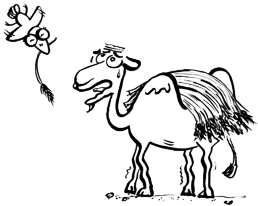So, as I ponder the New Realities of today's adoptive family, I really think it's time to change how we perceive an interruption in the family life of an adoptive family aka a disruption. The first point of changing our perspective is, in my opinion, changing how we perceive adoptive families. As I've said before, we aren't living Shared Fates, we are living Parallel Fates - we are socially constructed families who are put together because children/youth need parents and parents want a family unit that includes children/youth and for some reason that is deeply unique to each family, they have chosen adoption as a means of creating that unit. How or why we all go to these places are often irrelevant to the creation of the family. That is, a child's social worker looks through files and picks one that suits the social worker's view of what is best for the child. Sometimes the child has input ie "I want siblings" or "I want to be the only child" or "I want to live on a farm" or ...... Why on earth we think a traumatized child or even the 11th social worker in the file actually knows what is best is beyond me. Too often, the family is chosen because they are the only family who will accept the child or sib group and all other factors that may support or hinder the merging of this child into this family are then pushed aside.
Okay, now we have this socially constructed family unit and somehow it is supposed to magically transform into something that resembles society's view of "family". Generally that includes everyone developing relationships that allow opportunities for the child to blossom cognitively and emotionally and for the parents to feel good about their parenting skills and for everyone to be eventually (sooner rather than later) sitting happily around the Christmas table so very thankful to be together. Well, if you are reading this, then you know that isn't how it works out.
In some families, in fact, in many adoptive families, we don't get that happy Christmas scene. Instead, we get anger, resentment, mental health issues, lying, violence, drugs, stealing, chronic conflict, depression, anxiety, stress, isolation, mood dysregulation and more. Most families stumble through this and if we are all together at the age of majority it's considered a successful adoption. If we don't quite make the finish line, then it's considered a disruption or a dissolution. We are broken as a family and the relationships are legally and socially terminated. Good bye, toodle-oo, hosta la vista. One way exit.
Well friends, as I've said before, I don't agree that arriving at the youth's age of majority with the parents' health wrecked, and the relationships barely present, and the young person leaving the home filled with anger and resentment toward the adoptive parents, hey, that isn't success. And I don't think that not making it to the finish line and having the youth or child re-placed in foster care is a failure. We aren't genetic families and we don't have neurotypical children and we can't live by the same rules or have the same expectations placed on us. Success and failure are very different for us. But, too often, we don't get a choice. If we can't live with a child or youth anymore (for whatever reason), then we are pushed out his or her life. There is no alternative that allows us to change and adapt how we relate ie youth in kinship or foster care most of the time but continuing to see the adoptive family and to participate in whatever is possible of the adoptive family life. I don't agree that simply because we can't get along in the same house or sit together for Christmas dinner (or any dinner - or even sit in the same room) that the adoption has to be over. There needs to be time and space and support for those who want to continue the relationship to do so in an alternate form - to find their own way to be a family - and to have the time for the youth and parents to mature, to learn new skills, to let go of resentments, and to create a relationship that works for them rather than one that fits a pre-determined template.
Or, rather than placing an older child or youth into a family with the expectation that these parents will become mommy and/or daddy in the traditional, genetic sense - they are allowed to live together in a way that doesn't force expectations of relationship and roles and allows them time and support to develop what will work in their unique situation.
I know that's a huge challenge because we have a DNA drive to be parents and to be the mom or dad. But, DNA doesn't consider adoption - it doesn't consider taking a traumatized and neurologically harmed child from one setting, to another, to another and so on, until he or she finally ends up with some random people who now claim to be mom and/or dad.
We need to acknowledge that we are different from genetic families, and that we have to have different rules and different expectations, and that neither our successes nor our failures can be defined by past or traditional models. We need something new that fits today's adoption realities.
Well, back to work. Please have your best day possible and stay true to what you know is right for you and your family.






